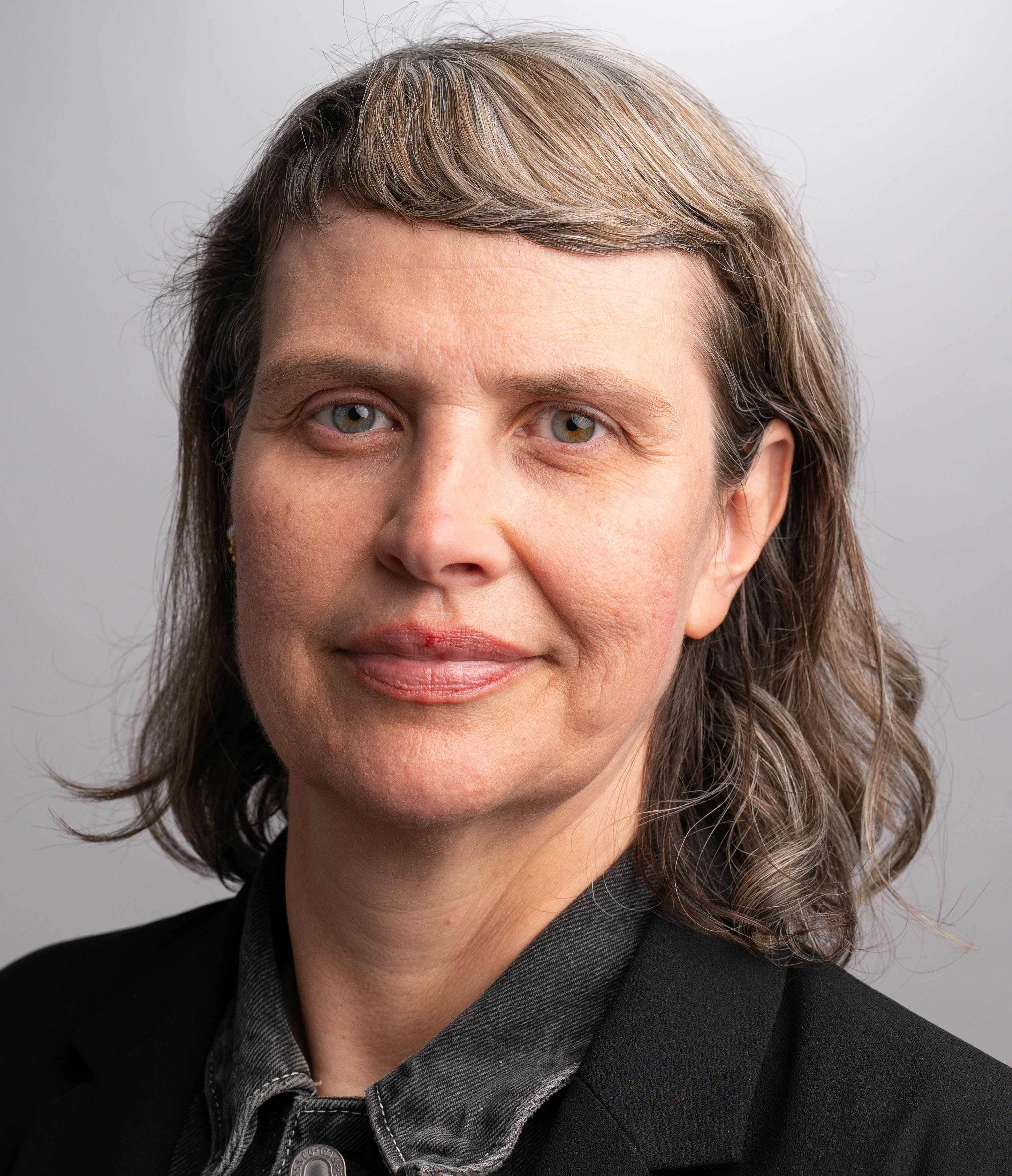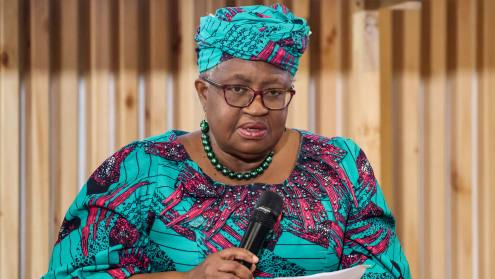Fresh off an overnight flight from COP28 in Dubai, Harry Boyd-Carpenter, managing director for climate strategy and delivery at the European Bank for Reconstruction and Development (EBRD), is in full recovery mode. “I keep saying I don’t care about peak emissions, I just care about peak COP,” he jokes when I ask him how he is feeling.
For many COP attendees, even the most seasoned ones, the biggest climate event in the calendar obviously takes a physical, and perhaps emotional, toll. But this year’s COP seemed particularly fraught given the global stocktake, which shows the world is not on track to keep global warming within the 1.5°C limit set under the Paris Climate Agreement, and the controversy surrounding COP28 president Sultan al-Jaber’s comments on climate science, net zero and fossil fuels.
On the day Mr Boyd-Carpenter and I spoke, the COP28 president was quoted as saying that countries needed to “get out of their comfort zone” if the climate conference was to reach any meaningful agreement. In the end, the global stocktake, which was unanimously approved by 198 countries, stopped short of phasing out or phasing down fossil fuels, and instead spoke about “transitioning away from fossil fuels in energy systems, in a just, orderly and equitable manner”.
I spoke with Mr Boyd-Carpenter just days before the final text was agreed. But in response to Sultan al-Jaber’s comments around the need for countries to get out of their comfort zone, I asked him whether that also applied to multilateral development banks.
“I don’t feel in a comfort zone at all,” says Mr Boyd-Carpenter. “I don’t think anyone in my team or frankly, anyone in the bank does. The more you work on this, the closer you are to the reality of the catastrophic environmental crisis. I feel that the deck is burning, and so it doesn’t feel like a comfort zone in the slightest, nor should it.”
So, if the deck is burning, why does it feel like everyone at this year’s COP was talking about everything but the phasing out or phasing down of fossil fuels? Are fossil fuels the elephant in the room, as NGOs attest? Mr Boyd-Carpenter proffers his own interpretation of what the elephant really is in this context.
“People saying the elephant in the room is the thing that no one wants to acknowledge. I don’t think that’s right,” he explains. “Despite the fact that there are still hundreds of millions of people who live in poverty, the story of the past 50 years is the lifting of billions of people out of poverty and the creation of historically unparalleled levels of wealth and quality of life across the globe. But we built it on burning fossil fuels, and now we have to stop them. So, it is an elephant-sized problem. Is it an unacknowledged problem? No. That’s why it’s constantly being talked about.”
A discussion about the future
However, he says governments sometimes fall into the trap of pretending that if we all looked hard enough, we would find this sort of magic solution so that life can carry on as normal. “The only way this gets fixed is if everybody, but especially voters, consumers and taxpayers in developed countries, change something about the ways in which we consume. Everybody has to fix it,” says Mr Boyd-Carpenter.
It is the age-old demand versus supply debate. But why are we seeing big announcements at COP28 around the trebling of investment in renewables and billions of dollars in commitments to the climate loss and damage fund, but nothing more substantial regarding the phasing out of fossil fuels?
The only way this gets fixed is if everybody, but especially voters, consumers and taxpayers in developed countries, change something about the ways in which we consume.
Mr Boyd-Carpenter says phasing out is really a discussion about what happens in the 2040s. “Nobody’s arguing that it stays the same. [Sultan al-Jaber] has said himself, ‘Look, you know, it’s clear we need to reduce emissions by 43% by 2030.’ And the only way you do that is by significantly reducing the use of unabated fossil fuels. So, the phase-out discussion is really about what happens in the late 2030s or 2040s, with no dispute about what has to happen in the next five or 10 years.”
But it is not just fossil fuel companies that are feeling the heat. Banks, including multilateral development banks, are coming under increasing pressure to do more and raise their ambition. During public consultations on the EBRD’s new Energy Sector Strategy, which was due to be voted on by the bank’s shareholders on December 13, the CEE Bankwatch Network said the EBRD had received more than 6200 emails demanding it divest from fossil fuels.
However, Mr Boyd-Carpenter says the new strategy essentially maintains the bank’s current approach with some further tightening. “Essentially, we don’t believe we should invest in coal or upstream oil and gas, but there is a very small window to do midstream where we think that a project is compatible with the goals of the Paris agreement and accelerates decarbonisation.”
According to CEE Bankwatch, the EBRD pumped €2.9bn into oil and fossil gas projects between 2018 and 2021. However Mr Boyd-Carpenter says it only carries out a couple of projects a year, if that, in the fossil fuel sector. “And almost every week we’re churning out another renewables, or energy efficiency project.” The EBRD has committed to achieving a green finance ratio of at least 50% of annual investment by 2025, but Mr Boyd-Carpenter says it managed to reach that target in both 2021 and 2022.
Yet, fossil fuels are so deeply embedded in our economic system and are very capital-intensive, long-run investments. “So just changing is intrinsically very difficult,” he adds. "But that’s why I do think the trebling of investment in renewables [announced at COP28] doesn’t get as much airtime as it deserves. You can’t think of a phase down without thinking of the phase in or the phase up. The world just giving up on fossil fuels is implausible because you’ve got to believe that any phase down has to be matched by a phase up.”
Nobody questions that the world cannot meet the Paris Agreement goals without a very significant reduction in fossil fuel consumption, says Mr Boyd-Carpenter, and certainly not the COP28 presidency. “There’s then a second question, which is, do you go to zero fossil fuels? Or do you go to a residual level of fossil fuels accompanied by carbon capture and carbon dioxide removal? And then there’s a third question, which is how fast does all this happen?”
In some respects, it seems more progress is being made on excluding coal than other fossil fuels such as oil and gas. In North Macedonia, for example, with the support of the EBRD and the World Bank, the country is embarking on an ambitious project to “quit coal” by announcing a roadmap to close two coal power plants, REK Bitola and REK Oslomej. The coal power plants will be replaced with 1.7 gigawatts of renewable energy. At COP28, North Macedonia launched its Just Energy Transition Investment Platform, which aims to mobilise up to €3bn in investments and technical assistance to help it become coal-free by 2030.
“In North Macedonia, the capital Skopje is one of most heavily polluted cities in Europe,” says Mr Boyd-Carpenter. “Another town, Bitola, which is near the major coal plant in North Macedonia, is similarly very badly affected by air quality problems and huge quantities of ash, which can lead to contamination of water supplies. So, environmentally, it’s a disaster. Economically, it’s also a disaster because if you look at the real costs, coal is way more expensive than wind and solar. And then politically, coal is unsustainable because if you’re a country that is on an EU accession path, you have to be getting off coal. In the long run, significant coal burning isn’t compatible with any form of relationship with the EU.”
In the long run, he says, the same economic and political fundamentals will also apply to oil and gas. “The critical driver will be, hopefully, a more widespread introduction of carbon pricing,” he says. “If you look at Europe, what has driven coal out of the energy mix is having a genuine price in the Emissions Trading Scheme. Balkan countries are committed under the Energy Community Treaty to implement emissions regulation and emissions trading, and they're also exposed to the Carbon Border Adjustment Mechanism. And that’s one of the drivers. Increasingly, these countries will say: ‘With or without emissions trading, this [coal] doesn’t make sense for us.’ Why wait, because all their coal plants are old and need replacing, and why would you replace a coal plant with another coal plant?”
A global carbon price is a long way off
As a bank which believes in the power of well-regulated markets, Mr Boyd-Carpenter says the EBRD wants to see a global carbon price across all activities set at a sufficiently high price to generate action. “We’ve seen first-hand because we operate in the EU, the effect when the price jumped from sort of five to 25. Now we’re up at 80. The impact on investment and behaviour is enormous. It makes projects bankable. It’s just the best thing. So we’d love to see that for carbon everywhere. But do we think that’s realistic? It’s a very long way away.”
The political economy in the US makes a global carbon price, or any form of carbon tax, extremely challenging, says Mr Boyd-Carpenter, at least at a federal level. “We keep pushing for it and supporting any of our countries of operation that want to introduce a carbon price. So we’ve supported both Ukraine and Kazakhstan in implementing emissions trading schemes. We’re also closely following the Chinese scheme, which covers more emissions than the whole of the EU put together, but currently at a very low price.”
One of the most surprising things during the energy crisis in the EU last year, says Mr Boyd-Carpenter, was how the high price for carbon persisted despite pressure to reduce it to ease the impact on end-user energy costs. Although there was some pushback, he says the European Commission and others “said: ‘No, we keep the scheme running,’ and it didn’t break the economy. That is really an interesting, untold success story. You can have really quite significant carbon pricing in the economy, and it works.”
He also believes voluntary carbon markets also have a role to play. “They are a precursor we hope to compliance markets. It’s also a way of generating climate finance flows from the developed world to developing countries, which is very important.”
But he has concerns about the integrity of the market. “There is a genuine question mark as to whether the market can ever reach high levels of integrity at scale. The high watermark of the voluntary carbon market was $2bn a year, in a year, which frankly, is trivial. It has to go to $20bn, $40bn a year. Can you do that and deliver integrity? I’d love the answer to be yes, but I just don’t know.”








